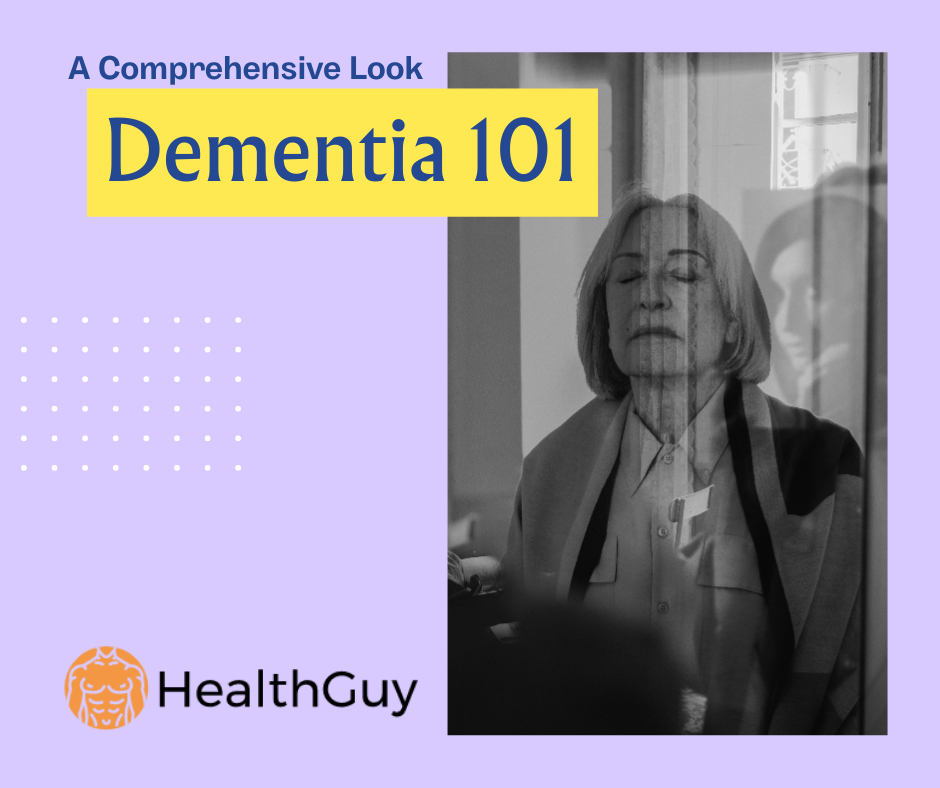
Dementia 101: A Comprehensive Look
Dementia is a condition that affects millions of people worldwide, and its prevalence is increasing as the global population ages. According to the World Health Organization, around 50 million people currently live with dementia, with 10 million new cases each year.
In the United States alone, it is estimated that over 6 million people have dementia, and this number is projected to increase to nearly 13 million by 2050. In Europe, there are an estimated 10 million people living with dementia.
Age is the most significant risk factor for developing dementia, with the risk increasing significantly after the age of 65. However, dementia can also affect younger people, regularly those with a family history of the condition.
Dementia is a condition that can be difficult to understand, especially if you haven’t experienced it yourself. In this article, we’ll be discussing the different aspects of dementia, including its causes, symptoms, and treatment options, in a way that’s clear and easy to understand.
What is dementia?
Dementia is a neurological condition that affects memory, thinking, and social abilities. It is a progressive condition that typically worsens over time and can have a significant impact on an individual’s daily life.
What are the types of dementia?
There are several different types of dementia, with Alzheimer’s disease being the most common. Other types include vascular dementia, frontotemporal dementia, and Lewy body dementia. Each type of dementia is characterized by specific changes in the brain and symptoms.
What are the early signs of dementia?
Memory loss is often one of the earliest signs of dementia, particularly with regard to recent events or conversations. Individuals with dementia may also have difficulty with language, spatial awareness, and problem-solving, and may struggle with everyday tasks such as getting dressed or preparing a meal.
What are the Risk Factors of dementia?
Age is the most significant risk factor for developing dementia, with genetics, high blood pressure, high cholesterol, head injury, smoking, alcohol consumption, and a sedentary lifestyle also being factors that can increase risk.
What causes dementia?
The exact causes of dementia are not fully understood, but researchers believe that a combination of genetic and environmental factors may play a role. Age is also a significant risk factor for developing dementia, with the likelihood of developing the condition increasing as we get older.
How is dementia diagnosed?
Diagnosing dementia can be challenging, as the symptoms may be similar to other conditions such as depression or anxiety. Doctors may conduct a series of tests, including cognitive and memory tests, brain scans, and blood tests, to help diagnose the condition.
Is there a cure for dementia?
Unfortunately, there is currently no cure for dementia. Treatments are focused on managing symptoms and improving quality of life. Medications may be prescribed to help manage symptoms such as memory loss and agitation, and lifestyle changes such as regular exercise and a healthy diet may also be beneficial.
What is the impact of dementia on caregivers?
Caring for a loved one with dementia can be challenging, both emotionally and physically. It is important for caregivers to seek support and resources, such as support groups and respite care, to ensure that they can provide the best possible care for their loved ones while also taking care of their being.
In conclusion, dementia is a complex and challenging condition that affects millions of people worldwide. While there is currently no cure for dementia, there are treatments and support available to help manage symptoms and improve the quality of life for both individuals with dementia and their loved ones. It is important for individuals to maintain a healthy lifestyle and seek support and resources to help cope with the challenges of dementia.
